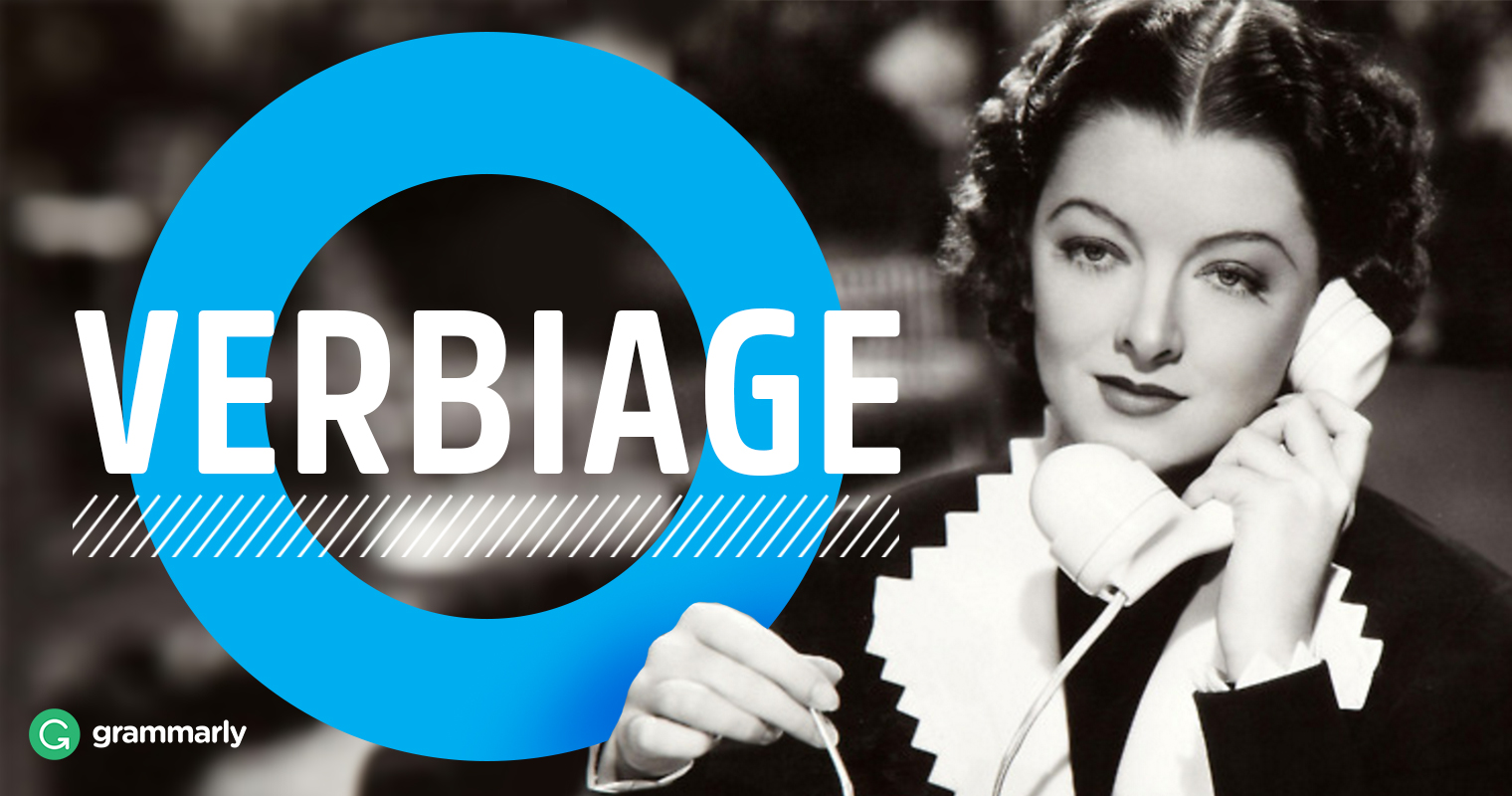
There are examples throughout the world of people trying to use as few words as possible to convey the most meaning. Haiku poetry, for example, is based on a very strict structure that allows only seventeen syllables in a poem. The laconic phrase, named after its original practitioners in ancient Sparta, is a way of saying things in an extremely concise and often blunt manner.
But if we take haikus and laconic phrases as representative of one end of the spectrum of language use—the minimalist end—what would find at the other end of the spectrum? Well, whatever it is, it’s likely it would be called verbiage.
Verbiage With a Negative Connotation
Verbiage, pronounced VER-be-ij, is a noun that comes from the Middle French word verbier, which meant “to chatter.” The most common meaning of the word verbiage is an unnecessary abundance of words. If you’ve ever heard someone speak for a long time without actually saying anything worthwhile, that’s what people would call verbiage:
This is the paradox of the power of literature: it seems that only when it is persecuted does it show its true powers, challenging authority, whereas in our permissive society it feels that it is being used merely to create the occasional pleasing contrast to the general ballooning of verbiage.
—Italo Calvino, The Uses of Literature
Verily this vichyssoise of verbiage veers most verbose, so let me simply add that it’s my very good honour to meet you and you may call me V.
—Alan Moore, V for Vendetta
Blogging, as we have previously noted, affords opportunities as well as pitfalls for researchers both established and in training. But how do readers use this Internet verbiage?
—Science
In its blending of verbiage and violence, its deft manipulation of tension, its blurring of the line between slapstick and shock, and its intricate weave of allusions to obscure and canonical films of the past, “Hateful Eight” is—what’s the term I’m looking for?—a Quentin Tarantino movie.
—The New York Times
When used in this sense, verbiage shares the meaning of “wordiness,” “verbosity,”and “prolixity.” Saying that something is “excessive verbiage” is redundant because verbiage already implies excess.
Verbiage Without a Negative Connotation
However, there’s another way you could use verbiage, without the negative implication. Verbiage can also refer to a general style of speaking or composing sentences—just the way people use their words:
We gather our ideas to put them into words, and if our verbiage is not empty or hollow, we might get these ideas across to a listener, who can unpack our words to extract their content.
—Steven Pinker, The Stuff of Thought: Language as a Window into Human Nature
Some of the most important verbiage in the 22-page decision is lurking in Footnote 6, where the court says FCA plaintiffs must state their claims with “plausibility and particularity.”
—Forbes
As you can see, this difference of meanings, with one being negative and the other being neutral, can sometimes make the use of verbiage risky. If you use the word verbiage to comment on someone’s speech, she may be offended even if you meant it in the neutral sense—it appears that many people are familiar with only the negative one. As it’s generally better to be sure than sorry, it might be better to use verbiage when its negative meaning would be the one that’s applicable.
The post What Is Verbiage? appeared first on Grammarly Blog.
from Grammarly Blog
https://www.grammarly.com/blog/what-is-verbiage/
No comments:
Post a Comment